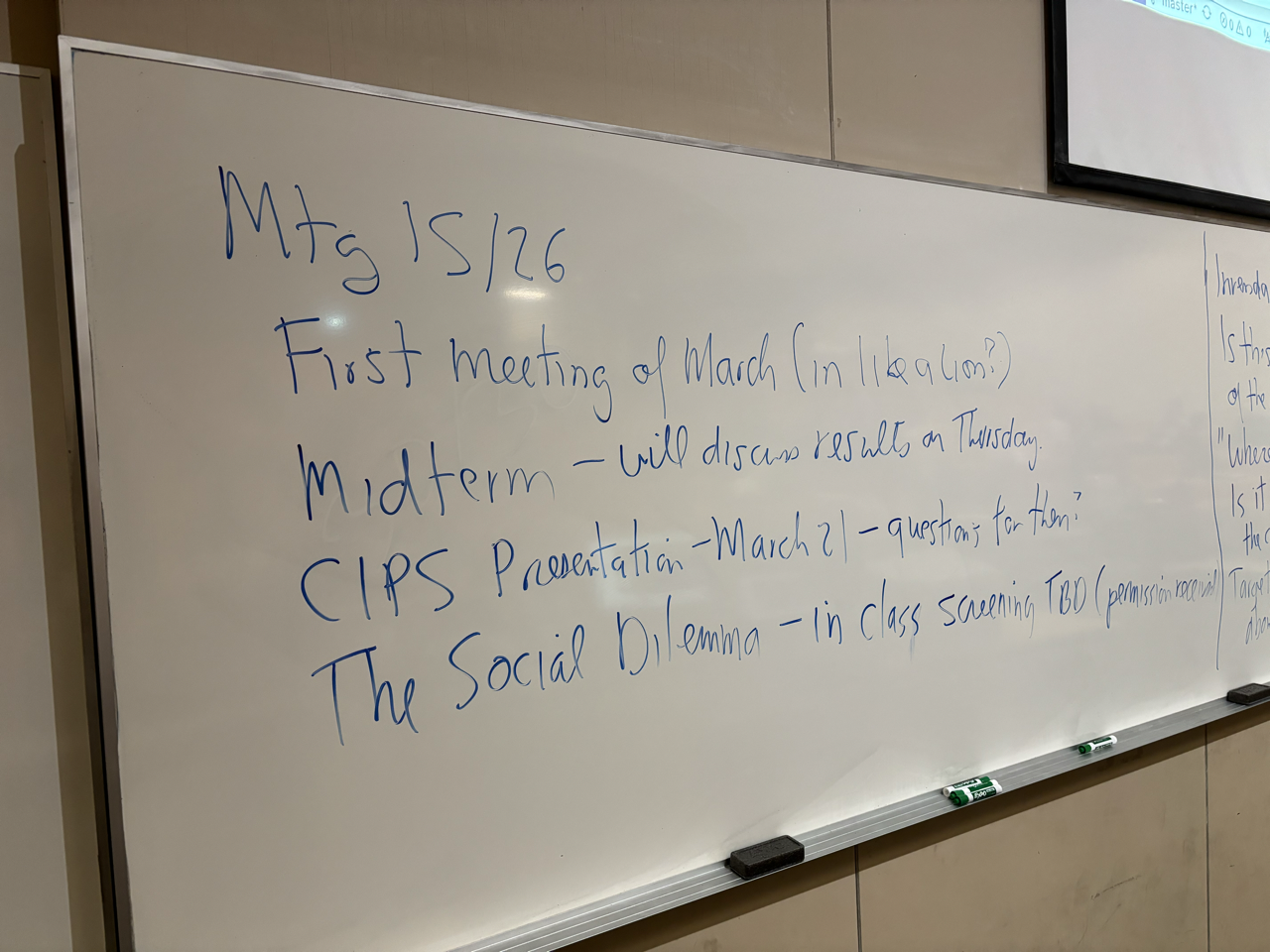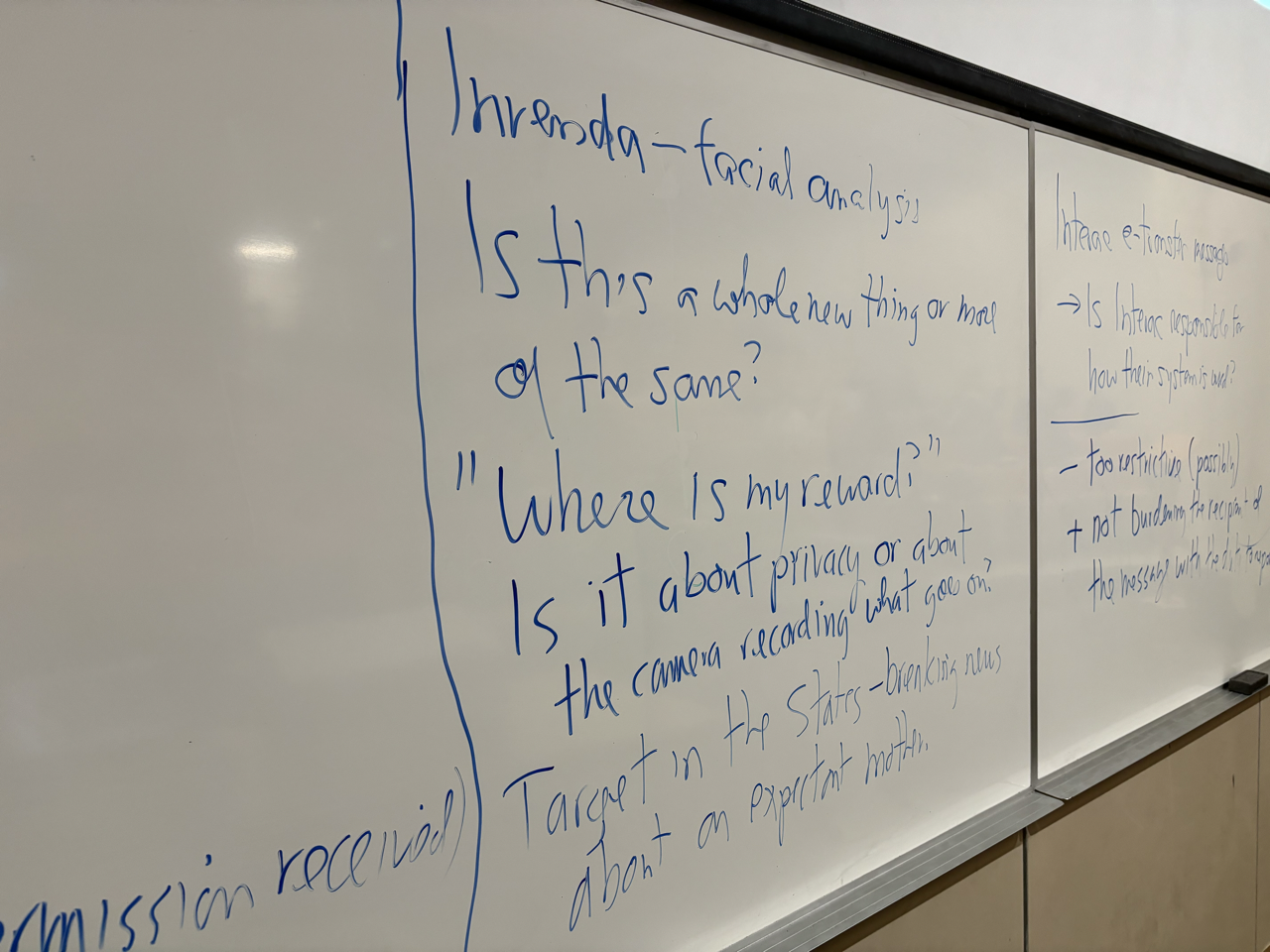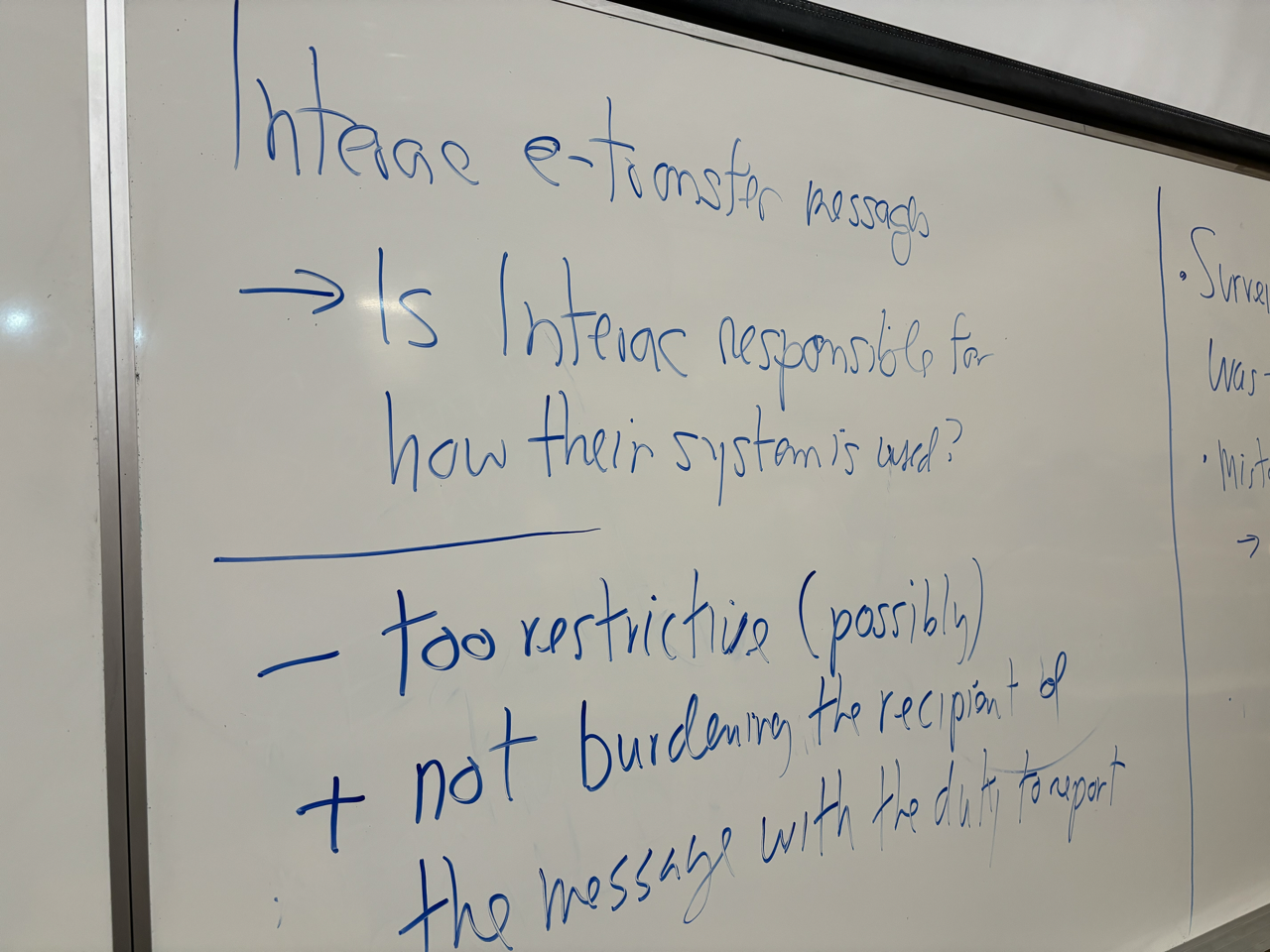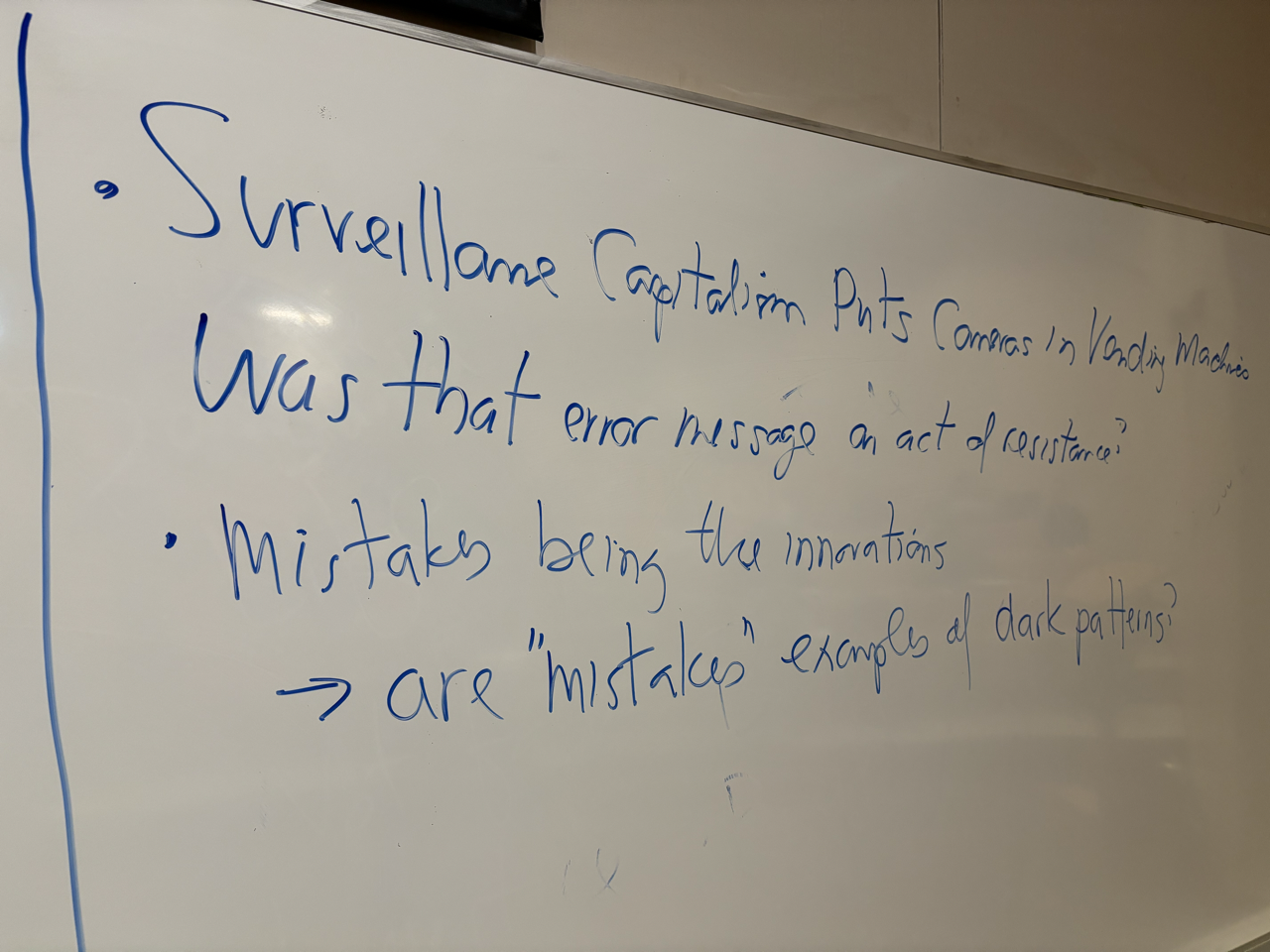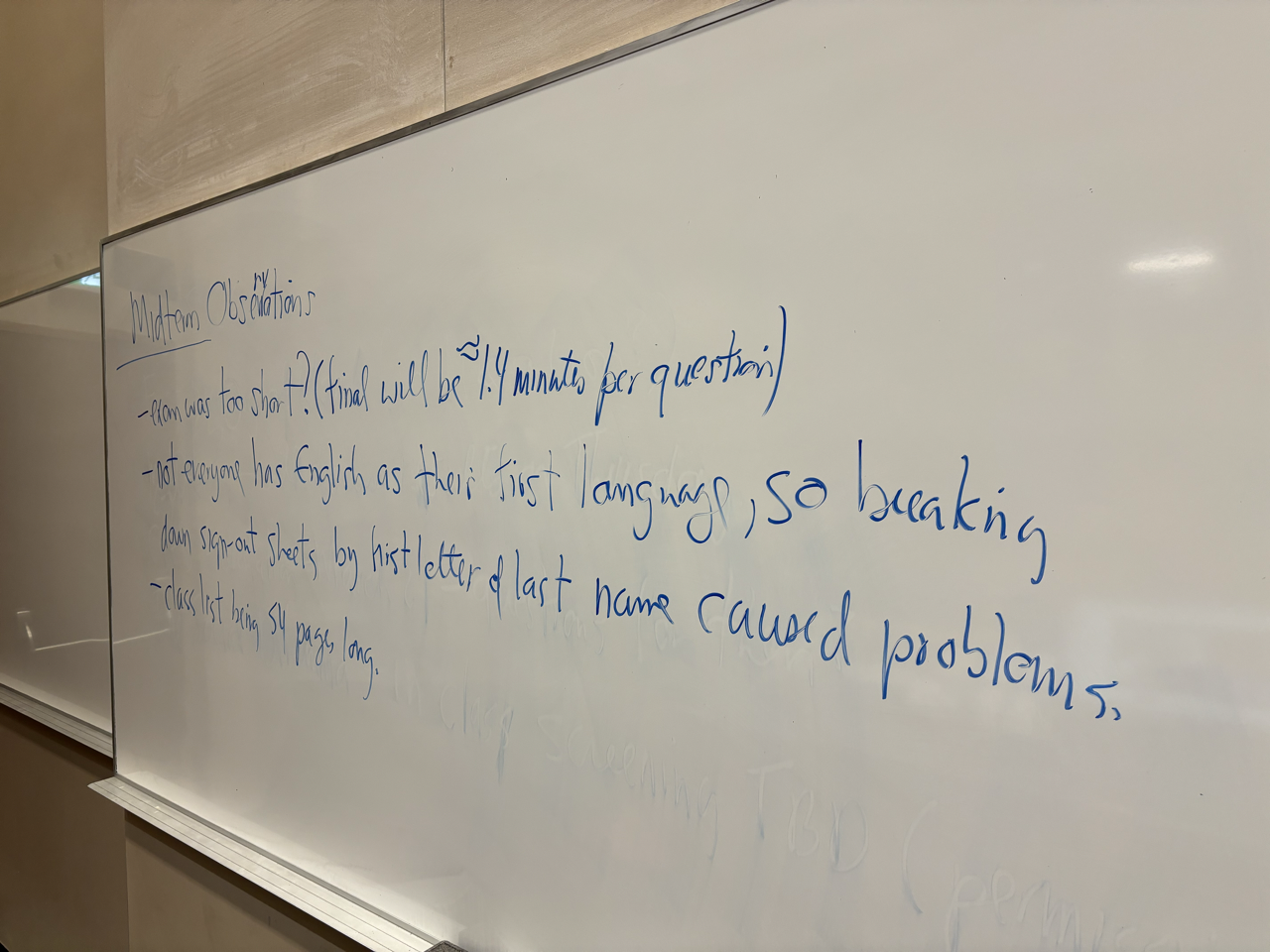Mtg 15/26: Tue-05-Mar-2024
Outline for Today
News
Administration
- Happy Tuesday
- Attendance
- Class calendar for today
- Upcoming events
Today
- Midterms? Will discuss results on Thursday
- Questions for CIPS presenters (including SFIA) on March 21?
- Vending machines
- Interac e-Transfer messaging abuse
- Surveillance Capitalism
Summary
Summary
For Next Meeting
- Submit your response to this meeting before noon tomorrow
- Listen to latest episode of Your Undivided Attention podcast
- Take quiz before the start of our next meeting
ACTION: Take quiz before next meeting
Wiki
Link to the UR Courses wiki page for this meeting
